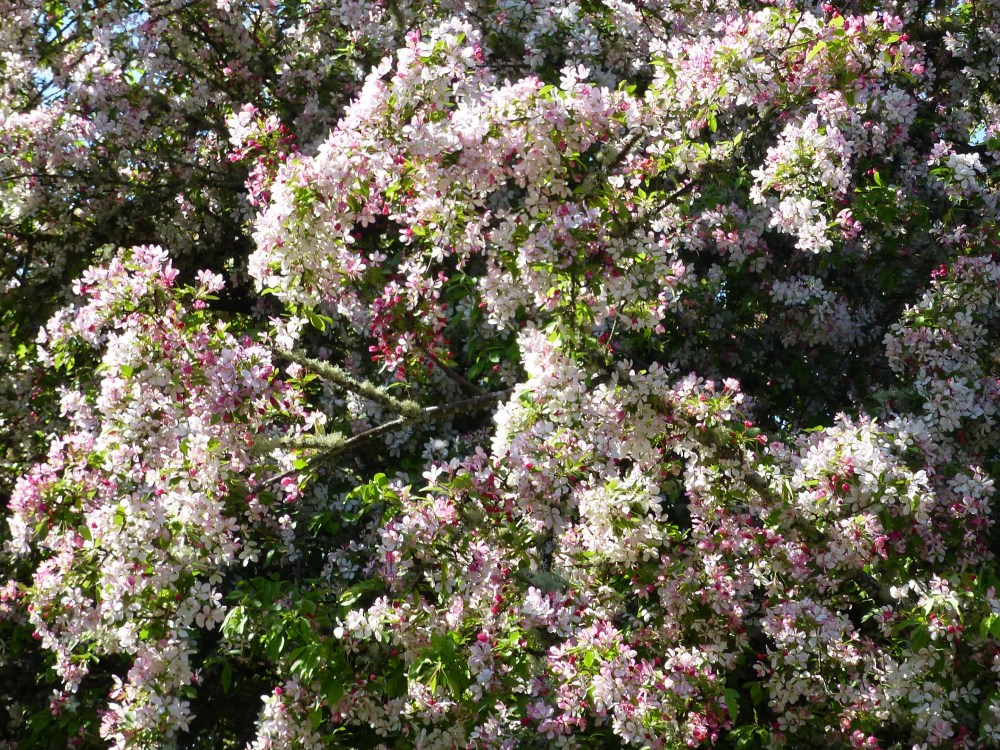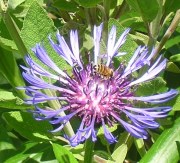By Madronna Holden
In her book, Almost Human, Shirley Strum explains her career choice of working with baboons, indicating that baboon intelligence brings them closer to humans than many other primates. She also notes the negative connotation of calling someone a “baboon”– though when all is said and done, it seems that baboons have something going for them that certain humans do not.
In her decade of research with baboons, Strum did things her predecessors had not. She got out of her jeep and followed the baboons on their daily rounds on foot, and she learned to identify each baboon as an individual and as a member of a multi-generation family—and she recorded baboon behavior accordingly. In turn, her meticulous observations told her that the male dominance theory of baboon society she inherited from other researchers just wasn’t holding up. In fact, her data indicated that female social alliances rather than male dominance were the stable center of baboon troops.
A young male might use aggression to hold a physical place on the outskirts of a troop he wanted to join—but only in the short term and because he had no other alternatives. Often such a male would single out a female, making subtle overtures to her for up to a year until she accepted him as a “friend”. At that point, he had an inroad into the troop and dropped his aggressive stance. After all, aggression earned him none of the social goods of baboon society—no grooming, no ability to lead the group to feeding or sleeping places—and absolutely no sex. Indeed, these new tough guys were subject to complete social isolation until they were able to trade in their aggression for the alliances that gave them connection and belonging.
Though individual males or females might choose to fight or manipulate others in particular situations, it was assuredly not the physically dominant males who ran things.
Strum’s observations are supported by DNA studies that indicate that the males who pass on their genes among baboons are not the aggressive ones—but the ones who gain alliances with the most female “friends”. Observations of wolves and deer expose parallel differences between fighters and breeders in these groups. Observations of the red deer of Ireland, for instance, indicate that while certain males are busy locking horns, others are busy breeding. One might find aggression in such groups if one is looking for it—but the winners of physical fights are not to be the ones passing on their genes. Indeed, locking horns may be nature’s way of taking the most aggressive individuals out of the gene pool of social animals—as in the case of a mild-mannered wolf whom observers christened “Casanova” because he was busy breeding while other males were busy fighting.
So are we in modern industrial societies smarter than such creatures? Not, I would argue, if we persist in pressing strategies of dominance that separate rich from poor, men from woman and humans from nature—in the face of the historical fact that human empires have barely eked out a few centuries before collapsing whereas societies based on cooperation have survived for thousands of years. And we are not very smart if we use domination to amass wealth and power to the neglect of other social goods, like knowledge and belonging.
In comparison with flexible baboon behavior, we humans often seem to be stuck in a rut—failing to exercise our adaptable potential. We even fail to take advantage of the science that exposes alternatives to the dead end strategy of simple dominance. Strum herself was baffled at the way in which her careful research was originally met with virulence—or conspicuously ignored—by other primate researchers. She paired with philosopher Bruno Latour to examine the worldview underlying primate research, and together they postulated a “myth of human origins” that drove much of such research– in which researchers were basically finding what they were programmed to find by their own cultural values. Their resistance to new perspectives followed the pattern detailed by Thomas Kuhn’s Structure of Scientific Revolutions, which documents how scientific paradigms in the history of Western science have shifted only after the worldviews that birthed them shifts. Until that point, scientists reshaped their data to fit their worldviews rather than using their data to expand their worldviews.
The “myth of human origins” in domination-based societies tells us that domination over others is an effective strategy for ensuring survival in the natural world. But in fact—as other species show us—nature is more complicated. Though domination-based societies might yield power and wealth to the ones on top, the dominator stance stymies long term survival. Since the human dominator cannot both live within the world and rule it from above, he tends to be ignorant of both the world he separates himself from, and the results of his actions upon it. One can hardly make decent decisions in the face of such ignorance.
Indeed, those who hold to the domination stance that goes hand in hand with the historical collapse of human empires have something to learn from young male baboons who work persistently and cleverly to replace domination with belonging.
This essay, along with other indicated material on this site other than comments (which should be attributed to their authors when quoted) is copyright by Madronna Holden. Please feel free to link here, but this essay may be used off site only with attribution and permission.
Filed under: Animals | Tagged: aggression, baboon society, Bruno Latour, dominance, Shirley Strum; baboon intelligence |






































I makes sense that less aggressive baboons would have the chance to mate more then ones that have shown aggressive behavior. Allowing more social interactions between males and females well in the long run form stronger bonds with each other. More access to females well lead to more breading. But scientist revoking this observation even though it makes more social sense because they personally believe that the dominance theory persists in nature. The segregation of classes, gender and race does show a lack of intelligence. People who tend to be more prejudiced and therefore giving in further to the dominance theory do tend to have lower IQs (http://www.thegrio.com/news/new-study-links-racism-prejudice-and-conservatism-to-low-iq.php) All it does is put things into a box and a label. Do humans lack the ability to adjust? The Dominance based theory sounds a lot like social Darwinism which was already shown to not be how Darwin wanted his theory of evolution used. Humans show the capabilities of being very great, but there is always the story about rising above the people who held you back in order to achieve this. What if there wasn’t that barrier?
Thanks for leading off the discussion with this thoughtful comment, Kayli.
This link fits directly into this essay’s poinnt–it would certainly seem that openness and flexibility has much to do with intelligence. And I also want to caution that IQ measurements are not the be all and end all of intelligence, as these tests are often culturally skewed and have some class prejudice– that is, those with particular cultural backgrounds will get a higher score because they speak the language. A few decades back a psychologist named Jensen used IQ tests to “prove” AFrican-Americans were not as smart as others– to which some responded by poking fun at the whole idea with the “chitlins” IQ test– which those not familiar with AFrican-American culture failed miserably.
I certainly think we might readily link openness and flexibility to Daniel Cole’s “emotional intelligence” scale.
Indeed, as you ask, what if we did not put up such barriers for others or have to meet them in ourselves? How much potential would we unleash?
I do not think IQ can be accurately associated with a person. There are so many factors that go into an individuals intelligence. I think most people are capable of being smart but they are mislead throughout their childhood. Why did we develop different races? Dogs are the perfect example because there are many different kinds of the same species. They can mate with other dogs but is that their main intention?. Humans developed different races of people but must have interbred at different levels a long time ago to create different races. The subject of classes is normal among species but the most intelligent species take it to a more complex level than others.
I am not sure what you mean by the “subject of classes” being “normal among species”.
Good point about the varied factors that go into an individual’s intelligence!
I think it is saying that the female baboons rank the males in different classes. The more aggressive ones are lesser than the other males. Among Lions, the most aggressive males lead the pride.
Thanks for your follow up. Interesting way of looking at this. And actually, there is some anecdotal evidence that the most aggressive lions do not lead the pack– or at least breed the most– though the best female hunters may lead. There was the instance in the San Diego Zoo (admittedly not the natural world) in which they were trying to get young female lions to breed and brought in several young and robust lions they would have nothing to do with. Finally, the zookeepers realized they were breeding with an elderly arthritic male that shared their cage and was so physically decrepit one female had to prop him up so the other could breed with him. Seems as those at least these female lions were “classing” male lions differently than in terms of aggressive potential.
Kayli Paterson;
Interesting subject that a low IQ (or intelligence quotient) may be one of the root causes of racist or prejudiced views (on the web site you posted). I have always felt that it stems from what our parents teach us. In my case, for I came from as I call them (Oregon red necks) and they were very prejudice. Now yes we probably would have scored low on IQ tests but I still feel it was my upbringing. I have now raised three children to believe the opposite of what I was taught and if any of the three are prejudice of my children it would be my oldest the twenty five year old and she has over a 150 IQ.My son and I watched a movie two days ago on cable and it was about how awful white supremacy is and my son had questions, so it gave me a chance to talk to him more about a subject we needed to talk more about. My son is fourteen and a great child it was good to talk. Yes you are correct on your thoughts of no barriers, we should all move forth without them thank you.
It sounds like sharing that movie with your son was not only an opportunity to share your values with him in a teachable moment, but a gift between you. My sense is that is it always a gift when we share these kinds of things with our children.
Yes I beilive it is a gift when we can teach our children good values-this week we also shared “The River has Many Stories” and the defacing of the rock art made him sad, but also made him understand values and respect.
I think it pretty evident that baboon’s have less options in life than humans do. They live their lives generation to generation the same way because that’s how their trained to do so. Their social tendencies are interesting but its likely the way they have been for hundreds of years and is nothing new. I guess sometimes humans don’t do a good enough job during their initial evaluations. Are baboons smarter than humans? Well yes we are. Women have the same same choices in our society today and they don’t always choose the aggressive male do they? Sometimes they choose the male with the best genes. I read a recent study that said that women are more attracted to men that are more capable of having children. So maybe this attraction is based on their want/need to reproduce. I like to think that women would choose their men based on whether or not they have accomplished something in life and that the genetics would be better for their offspring. It is impossible to completely study humans in the same manner as baboons because there are so many different variations they would have to take into account.
Thanks for your comment: if you were to read Strum’s book, I think you might see more flexibility and choice in baboon behavior.
Indeed, we cannot assume that baboons are like humans– but can we critique our own choices based on something we see in others (including other species)?
Andrew,
I think we have to look at how we define smart. There are many species that have been on this earth longer than we have so are they smarter? Their survival skills and relationship with nature has not destroyed them as ours is starting to. I’m a little interested in your study because of pervious weeks’ readings about how we view science and social science from this patriarchal view point. Are women really more attracted to men based on their capability to have children, and what does that mean? I would think that someone who is responsible with a job would be more capable to have children, but maybe it’s the sense of responsibility women are attracted to. Or it could be like-mindedness, women who want to have children are attracted to men that do. But what about women who don’t want to have children, are they still attracted to these same men who are more capable of having children. I’m just being devil’s advocate here, I know that this wasn’t the point of your post, but it just stuck out to me. Thanks for sharing.
Three ideas come to mind after reading this article.
The first is –which baboon is happier, the baboon trying to be the dominant or the baboon trying to belong? I would venture the baboon that is seeking acceptance and friendship is more content and has much more social interaction. Since the article does mention the isolation of the baboons who present themselves aggressively, it does seem logical that satisfaction will not follow.
The second idea that comes to mind is the natural model of reciprocity. The dominant, more aggressive baboon is receiving exactly that which he is giving—bad attitude and no friends. The friendly baboon is receiving that which he is giving, love and friendship…and oh, by the way, more sex.
The third idea is my utter joy to find a species on the earth that has finally figured out how to get along in the world…and oh, hmmm, it wasn’t humans.
I enjoyed your response, Bev– points one and two are well taken–and I laughed out loud at your last sentence. Seems like we have something we might learn here: there is a reason that some peoples believe that we can only learn to be the best humans possible through learning from other species. (As in Deborah Rose’s book on the Aborigine, Dingo Makes us Human).
Thanks for the thoughtful response!
I liked your question about the baboons Bev. I would think the happiest baboon would be the one getting the most “friendship.”
It does make since that the more aggressive baboons would be isolated since they live in small close knit groups, and that behavior would offset the balance of harmony. No a bad to thrive since they are following the natural model reciprocity in many ways. Do you think humans will ever get this non-aggressive concept mastered?
Your response to the question about the baboon happiness is a good one, Joy–and has some light to shed on our human happiness as well, I think.
Bev,
I really enjoyed reading your comment but I couldn’t help shake the question of “what is happiness” from my mind as I read everyone else’s response. Do Baboons “feel” happiness? What would this be like for them? I can not help but wonder if the desire to figure out how to get in the group has to do more with a sense of survival. Many primates, like humans, are social beings and need that connection with other baboons, whether that be through sex or eating with other baboons or talking with other baboons. But do the baboons equate this energetic connection, these social interactions with happiness? Do they feel happiness? I do not know…but I couldn’t help but wonder. Many people (this is something I have recently been attuned to as in an anthropology class I have been conducting interviews for an ethnography and have been told this by my interviewees) believe that one thing that separates humans from other animals is our ability to produce emotions that allow us to feel something and in turn sparks a memory or the imagination that leads to further actions/choices. Would the emotional response of happiness that a baboon feels affect it the same way that it would a human? Would happiness spark the imagination to dream? Or a memory to recall what was happiness? Do they feel it in such a way that their next actions are always to feel the emotional response to happiness? Or is the seeing of what a baboon can attain if they let go of their aggression what drives them? The seeing of survival within the community and the ability to survive within this life?
I do not believe this is what you meant to have read into your comment, but it was just a thought that kept popping into my head as I read your response.
Thoughtful questions–and whereas we don’t want to make all higher primates out to be just like ourselves, I also don’t think we need to go out of our way to separate our feelings from their potential in their own way (and species).
The questions that you ask might just as well be asked by someone standing outside our own species looking in– do we REALLY feel happiness or are we just posturing in the way we do for security.
Interestingly Jane Goodall actually postulates that chimpanzees may be capable of feeling wonder and/or awe given their response to a particularly dramatic waterfall that seems to have no practical function for them.
And recent research has interestingly located a part of the brain of many higher mammals (including whales) that is activated when we feel joy–and they seem to as we observe them. I like to think of this as more than a rote response to wanting security.
I also find it a matter more of our own dualistic worldview than true observation when we ask science to be so “hard-nosed” in separating ourselves from other living creatures. If it is indeed true that we cannot see “inside” the feelings of these creatures, why go out of our way to minimize these?
And a correction, Michelle, it is compassion centers, not happiness centers that have been located in the brain. They are activated when we feel empathy–and higher primates and dolphins and whales have the same brain centers, which seem to be primary linked to feelings of empathy in ourselves.
Dear Professor Holden,
Thank you for your energetic response. My written thoughts to Bev’s commentary were in no way meant to minimize the Baboon as a species and give the impression that I do not believe they feel. I never mentioned anything about a “happiness center” within the brain and am well aware that compassion is something found within the brains of many species. I understand that it is the feeling of compassion that links us humans to many other species and is something we have in common. My questions come from Bev’s initial statement of “which Baboon is happier?” I wonder that as well…and is the reason why I asked the questions – how can we see or tell which one is happier? Or can we even tell which would be happier if they do not feel happiness? Like you say “if it is indeed true that we cannot see ‘inside’ the feelings of these creatures” then how can we suppose one to be happier than the other? How do we tell this? Or why ask the question? Are we just to take for granted and impose human emotions onto the Baboon to satisfy our inability to understand? Yet there is clearly a moment in time, that I have understood from your article, where a Baboon will have thought and decide to “drop…his aggressive stance”, as you note. I wonder why? What inside him motivated him to do this, where did it come from? I realize these are questions we can not answer but still I ask them for maybe someday we can understand. To believe that a Baboon does not feel or is not motivated by his/her feelings is to, in my opinion, minimize them as a species – for although we can not see inside there brain, it is still very complex and who is to say they do not feel or have emotions?
Are you indicating that one cannot tell that an animal is suffering because we cannot see inside him?
We do not need an all or nothing approach here– either we know everything or nothing. Indeed, we are on dangerous ground if we think that it makes no difference (and/or we cannot tell) if another creature is in pain.
The extremity of this question actually leads us to the point where we CAN certainly tell if we are putting another animal in pain from their own behavior. And if that is so, why we cannot say they might be happy under other circumstances?
You bring up thoughtful points to consider– for our relationship to humans as well as non-human animals. There were many decades when babies were circumzized without anesthetic on the premise that their cries did not really indicate they felt pain — since their neural circuits were not developed enough for this to happen. A pretty big presumption, it turns out!
Rather than using lack of certitude in seeing inside another to license us to behave any way at all toward another creature, I would rather err on the side of caution and pay attention to their lead. Animals of all species, including humans, certainly give us signs as to what they like or desire and how they do not wish to be treated. I am not so much invested in whether we call this “happiness” or sadness on their part– but more in what it tells us about our own ethical responses.
Good point! I liked your 3 ideas. Mostly I was interested about your first idea that which baboon is happier. Well, more social interaction may be better for our society even though we sometimes get confused about too much interaction with society…
From your idea, I also come up with the question “Human or baboon, which is happier” I do not really know about the answer because I never beome baboon so i cannot feel it.
We never known!
We will indeed never be inside the mind of another species (perhaps not even another human). but we can ponder questions such as the one you and Bev present– to what extent are intelligence and life satisfaction (happiness?) linked.
I know many people will scoff at the idea of baboons being smarter than humans, but I have always thought there are different kinds of intelligence. We do put a great deal of emphasis on IQ type intelligence, especially on abstract ideas like math and physics. This is good knowledge, but not survival skills in the natural world. It’s like the Ornithologist that knows every detail about the birds they study, but nothing about the forest the birds live in. There is a bigger picture. We need to know there is a whole world of knowledge out there that modern human societies are missing out on.
What the indigenous people and obviously the baboons know is that being able to harvest your own food, hunt, and live peacefully amongst others is intelligent. What happens if there is an economic depression and everything shuts down including grocery stores? Does the average American have the ability to sustain themselves off the area in which they are living? I’m not disregarding the concept of going to school and learning math, but how about taking classes in gardening and sustainable living as well.
Maybe it’s time to take a look at what other species like baboons are doing to evolve. I’ve always thought aggression was a primitive emotion based on fear. In societies where rulers have lead by aggressive means it always seems to end badly for the people in power. Cultures that live in peace as the Natives do, still exist after thousands of years.
I really enjoyed reading your response Joy and love the idea of adding sustainable living, gardening and even some environmental ethics classes to the K-12 curriculum. Once upon a time, kitchen gardens were common and there was knowledge transfer from generation to generation about how to grow food, preserve food, and how to cook whole foods. Not so much these days, at least not where I am living.
Passing such information from generation to generation seems to be the process that gave us culture and made us human in the first place. Given our current environmental crises, it seems like it would not be a bad idea to revive the sharing of such knowledge now.
And there is this that both your comments bring up: even if we have no crisis which throws us back on the knowledge of survival we no longer have, being in touch with such skills will allow us to make more reasonable ethical choices with respect to the environment which we understand with intimacy and connection.
Thanks for your telling perspective on aggression, Joy.
I think you have a well taken point about differing forms of intelligence– and there are certainly some forms that are more in line with survival than others.
The kinds, for instance, that put species in touch with their surroundings and how to adapt to them seem to be a rationality we current humans might gain more of.
I appreciate your comments. I think instinct and culture (defined as ‘learned behavior’) are far more important in determining intelligence. The IQ test was to determine a person’s ability to think and reason, not just their vocabulary or math skill. We should really incorporate other factors into how we determine if a person or animal is intelligent and can reason.
I just wrote a paper on seeing the big picture and the research supporting this theory. It was interesting to show how each micro-ecosystem tied into a larger and larger system until it encompassed the earth. Like you mentioned the ornithologist not seeing the trees for the birds within them, we need to evaluate the larger picture surrounding the behavior in which we are studying or discussing.
We can surely use holistic views, Kristy– sounds like you did some research in this vein.
I know that if I were suddenly thrown into the wild I would have a hard time figuring out how to survive. I think that our society should also teach about how to survive in different situations. We should place more merit in being able to survive off the land if need be. I think that a melding of our technological society with survival instincts could help people realize what is important.
Thoughtful points: If we continue to see the “wild” as foreign to and separate from our lives, we aren’t going to get very far in making choices responsible with respect to the natural world.
I greatly enjoyed this essay and everyone’s comments, but I came away with a little different take on it. Baboon troops evidently do not tolerate bullying – if a young male is hanging out around the periphery of the troop and acting agressive or violent, the group rejects him. When he is able to get along with others, he is accepted into the group. In human societies, at least in recent times, it seems individuals can behave badly and in a way that jeopardizes the welfare of the community, and still be rewarded for it. And unfortunately, human societies are so conditioned to think we must all be nice and get along that we refuse to ostracise poorly-behaving individuals. Then these individuals proliferate and become the “leaders”, bullying the more passive individuals. In other words, maybe it is a failure of our culture (in US at least) that we are forced into a role where we must always be nice. Witness our political figures, we could start with our governor, some of our current presidential nominees (Newt, for instance, and before he dropped out, Rick Perry), It is really astounding how well people with questionable ethics and criminal backgrounds prevail in our society. Baboons would just kick the crooks out, and refuse to pick lice off or frolic in the bushes with them.
opps. I forgot this was Oregon State and not University of Florida class (where I am based!), Sorry if I offended anyone – when I was referring to “our Governor” I meant Rick Scott, Governor of Florida (whose company was charged with multiple counts of felony fraud for fake Medicare charges (then we susbequently elected him governor)!
I love the way you are having fun with this essay– and making some very pointed observations on today’s human society as well.
And I understand you are talking about the Florida governor and his felony fraud history rather than Oregon’s governor (as your other post here states)!
It is indeed time we stopped rewarding those individuals and corporations that do the wrong thing. Time to stop paying them off, electing them to office, giving them more power, etc. Not exactly rational behavior, yes?
Most of all, it is time for us to remove from bullies the power to continue to bully anyone.
I laughed out loud at your last sentence!
Yes, I hope your governor is better than ours, who I belive is the most unpopular governer in the US, with an approval rating hovering in the 30-35% level. I do not know how successful we will be at stopping the rewards. I am very engaged in poiltics in my state right now. especially in the area of water management and conservation land management, The extreme right is in control, and they have blatently purged the agencies so they have no opposition to their agenda (I know – I and my boss were victims). Supplied with facts to counter their arguments – very clear ones, in writing – they ignore it and later deny its existence. But I do have faith we will prevail – our group grows stronger the more evident the deception becomes. Going back to baboons – the other very potent point to me was how scientists can just fall into believing the foundational research upon which their own follows. I think we get lazy, we want to trust what has been done so we are not going “backwards” and finally I think our culture of time – very linear and unidirectional – also hampers how we conduct our research.
The sad part is that the “most unpopular governor in the US” still maintains the power to do so much damage. Thank you for working to prevail–and adding your strength to the strength of the group that is fighting such injustice.
Great point about just following along behind precedent – and ironic when science is supposed to be replicable as an aspect of its validity. When Strum arrived to take over the research of the young male researcher who never got out of his jeep– and she suggested she might do so, he replied it was “too dangerous” for him to do and advised her against it.
It took her going over and over her own data before she believed what it was showing her, since it was so different from what you rightly call the “lazy” research that went before.
I don’t think that we can really compare ourselves to being smarter than an animal or not, just like we can’t really compare if an ant is smarter than a fish. We all have different attributes that make us the species that we are. Fish don’t win because they can breather under water no more than we win because we can breathe the air. I find it extremely interesting how we anthropomorphize nature into what we think it should be doing or how it should be acting. We see nature in terms of how we live our lives and try to relate it to how we are acting. When really each species, and even different societies interact differently with each other and nature.
Thank you for this comment. I agree that humans exhibit anthropomorphism toward animals and nature far to often and try to draw conclusions based upon this. If we cannot compare human to human based upon an IQ test, then it seems really silly to compare animals to humans. And further, for most incidences such as this article, it’s not a matter of intelligence among the same species but in many cases it is more of a social or cultural context.
That said, I’m the first to “speak” for my pets as if giving them a voice, and I can say, they are all very funny and witty creatures!
Nice balance in this response, Kristy.
I understand what you are saying. I have wondered how we determine intelligence in other creatures. It has been said that animals are intelligent because they cannot communicate verbally with us, but they most certainly can communicate in others ways and most definitely with each other. They don’t speak any human languages so we deny them the same level of intelligence as us. It is unfair to animals for us to do that because we are only looking at it from the human perspective. Human intelligence tests are for humans only. You can’t give a human intelligence test to an animal just the same as your comparison of an ant and a fish.
And even human intelligence tests have their problems and biases…
Well this data really expanded worldviews for me. When I read it I could not help but think of dominion and how females have the key. I say to my 25 year old daughter who is searching for a mate, “Go for a nice smart one, even if you are attracted to the strong not so smart ones.” But serious the olive baboons have the right idea for wanting to be able to keep things from becoming chaotic. You take out the consistent trouble makers and you keep the peace for the remaining members of the group. The baboons seem to have a very complex level of social organization that we could take lessons from. Humans seem to be so involved in pride and egoism in our social values that we elect not to work on our social organizing. If we started with kicking out the humans who like violence even if they are starting wars but not involved, it is than when we could start working on more important things involved with our social organization.
You bring up things to consider, Colinda. And actually, it seems that some indigenous (like the San of Africa) do spend a good deal of time on their social organization (working out how to get along). Seems like we ourselves might do more of these.
One thing that impresses me about the young baboons’ initiatives here is not so much that they are subject to social isolation but that they change their behavior from aggression to more clever strategies to earn themselves what they want.
Imagine if we didn’t have to oust aggressive young men from among us because we rewarded them for changing into productive members of our society?
The research of Ms. Strum demonstrates how an active participant in the research gains much different information than the researcher who views from a distance. I understand that viewing is hoping to gather data undisturbed from a human presence, however, Ms. Strum clearly learned more by her research, which in turn has now spread to all of us.
This really article speaks to social and cultural values within the baboon troops as well as the human “troops,” or cultures we identify with. The culture of the troops presents clear facts for which behavior is tolerated and under which conditions. It’s not about intelligence, aggression, or even sex, but the behavior is about what is or is not tolerated within a social group.
We are similar to the baboon society in our human society, and each group has behaviors that are tolerated and encouraged, and others that are not. For example in human terms, gang membership requires the “troop” to defend each other and with this violence is encouraged. A non-violent person would not be allowed into this cultural group to knit socks and bake cookies for the other gang members. On the contrary, most of polite society renounces any type of violence, especially toward families. Those with violent tendencies are outcast and shunned, often ending up in prison. Depending upon perspective this is right or wrong (I firmly sit in the WRONG category!). This brings up the question “can people be rehabilitated and change?” People all want to “fit in” much like the baboons in this article. This is the basis for peer pressure which leads people, often our impressionable youth, into making decisions they otherwise wouldn’t, and leads us to make decisions that assert our position in the social groups we choose. Frustration and lack of knowledge is one main cause of aggression, in both the baboons, who are initially unsure of what behavior is accepted, and humans who experience the same phenomenon.
There are always exceptions to the rule caused by physical or mental illnesses or injuries and these should be excluded from the overall context, however, in general whether or not people can change depends upon their desire to be isolated or in which social group they choose to belong to. The former violent gang member could choose to continue his violent ways and be excluded from polite society fitting in with other rough and aggressive people, or he could choose to knit socks and bake cookies for the homeless in order to be accepted into the volunteer community. The same stand is true for the baboons. They can continue their aggressive ways and remain in a bachelor troop, or they can choose to become less aggressive and become friends with the social group in which they choose to belong. Instinct, hormones and intelligence all play a part in those decisions, for both humans and animals alike.
Finally, the baboon who cultivates a friendship first, in the end copulates the most. So I suppose, there is hope for all of those who feel that “the good guy finishes last.”
Hi Kristy, that is Dr. Strum (which you would not have any way of knowing).
Interestingly, she worked very hard to both observe the baboons at close range AND to inhibit her personal interactions with them. For instance, one young female attempted to groom her and though she was touched, she moved away, as she did not wish to affect the troop with her personal reactions. This is, incidentally, different from the renowned Jane Goodall’s approach in working with chimpanzees.
Your criteria of social tolerance gives us food for thought. But Strum also distinguishes aggressive behaviors pretty clearly — when a baboon attacks or physically fights with another.
Your notion of motivating people to change is brought up in another comment here– in which it is also mentioned that we aren’t doing this very effectively when we reward corporate behavior (wrecking our environmental commons, lying to the public, etc.) that few of us desire from them.
I don’t remember Dr. Strum mentioning any bachelor troops– these young males were moving from their natal troops (where their connections to their families gave them fewer breeding and alliance possibilities) to troops where they had more social options.
And it is essential, I think, to know which comes first here: baboons only seem to drop their aggressive stance once they have something to replace it with (albeit something they work very hard to develop).
And though we might be fond of saying “nice guys finish last” in a competitive society like our own, they evidently breed first in many mammal societies.
A great article that really makes one think about our human actions in relation to other species actions and illustrates how we, humans, can learn from a species like the Baboon.
I find Shirley Strum to be an interesting woman, based on this article that discusses her research and new ideas, specifically the idea of “myth of human origins”. Based on the patterns by Thomas Kuhn who found that science shifts once the worldview shifts. It’s brilliant and fascinating! That when we change our worldview then new possibilities open up and we view things differently, hopefully more connected and we are able to fit the puzzle pieces together. So the question then I wonder is how was their worldview altered? Did the lack of science force them to look outside their worldview and see beyond, allowing for a shift in thought? Or was it something else altogether? Whatever the case, it is still fascinating to read about and learn about.
Unfortunately, the scientists stuck on the male dominance “myth of human origins” did not–at least as Strum details it by the time this book came out– seem to want to change this.
One thing Kuhn’s historical analysis tells us is that when such a “myth” (meaning not an untruth, but a particular story or paradigm) comes into play, those who hold to it hold to it in spite of the data.
The data on the paucity of passing on genes on the part of aggressive individuals may be shifting the paradigm– as may the field of ecology with its studies of interdependence. There has also been quite a flurry of studies on cooperation in human societies recently– so the old paradigm may be getting some cracks in it– even IF there are still those who hold to it in spite of all.
As to the latter, I am reminded of a Will Rogers statement, “It is not what he doesn’t know that worries me. It is what he knows for sure that just ain’t so.”
And part of the pressure for change comes from the data of women fieldworkers who see animals as other than machines that we can only see on the surface– rather than in terms of interactions. The former is the reductive model that predominating in Western science since its inception–and relates directly to other points you have made on this forum.
Thanks for the thoughtful discussion.
It is very amusing to me that humans consider themselves as better than other organisms. The current worldview is still one of domination. When looking over history it didn’t really connect with me that the reason these empires fell is because they sought to dominate. It makes perfect sense though, people rebel against being dominated, it might not happen for many years, but it generally does happen. If past empires had instead treated other peoples with respect and kindness we probably would still have the Roman Empire around. Animal relationships are being studied and re-evaluated because scientists looked at animal societies with the view of domination and aggressiveness being desirable.
If we were to promote non aggressiveness in our societies we would be better off. Our closest animal relatives have learned that dominance isn’t necessarily a good trait to be passed on, why can’t we learn it?
Holly,
It’s so true that people don’t like to be dominated, so why would that be any different in animal societies? Maybe one of the reasons why we think we see this domination is because it is the ones who are dominating our society are looking for conformation in other animal societies. Even within families we don’t like to be dominated, that’s why as children get older and become teenagers many times they will rebel against what parents, teachers and authority figures are saying. Everyone wants to find their own place without being told where to go. If you think about your group of friends, it’s not the most aggressive friend that is liked best, but usually the outgoing one that is friends with everyone. You can see that in small groups aggression doesn’t get you far, much like the baboons.
Good point about the resistance to domination everywhere–and in the face of this, those bent on this strategy are indeed looking for ways to confirm their choices. In fact, that was the finding of the work done by Latour and Strum on the “myth of human origins” among primate researchers.
Indeed, Holly. Thanks for your thoughtful response and sharing both the humor and the insight that non-human animals lend us in perspective on ourselves.
Very true, but don’t forget that not only will people rebel, but the ecosystem will as well. Every ecosystem has a certain carrying capacity and as dominators continue their exploitation and seek to further it, the natural environment will die out and biodiversity will be lost, leading to a full on ecological collapse of dominator societies.
A good argument against the assumption that we can control the natural world for our benefit without any serious consequences?
How do we determine the smartness? Is it just number of IQ? or showing successfully results in your life? I believe that we can define the smartness from our behavior, such as how we treat our environment and how we treat people. I think baboon has less things than we do because they cannot talk or they do not have enough brain size to think as we can. However, if we get some equipment to baboon they can get used to it. We can write our knowledge and history as a book, but baboon cannot leave their knowledge as written form. Well, I guess they might leave their experience genetically, but I am not so sure about that field. Anyway, does baboon destroy the nature? The answer is no. I believe they have the partnership with the nature which human may not have it yet. Therefore I think baboon is smarter than us.
That is the key question that you raise: how do we determine intelligence? I wanted to get us to think about this as you did–and to think about our own choices as well. It does seem that true intelligence should have something to do with not destroying one’s means of subsistence, yes? Not to mention, having flexible strategies for getting along with one another (as the baboons seem to do) rather than clinging to a dominator strategy that is clearly not working.
The human dominator thinks nothing of the future and doesn’t care too. They live in the here and now, exploiting the world for their own simple gain to make the most of the short time on earth that they have. However, this attitude only hastens our decline. Ignorance is blind, not bliss.
I recently had the pleasure of reading a journal article (Jared Diamond, Ecological Collapses of Past Civilizations, 1994) that details the ecological collapse of past civilizations, which is profound and shouldn’t be read lightly by today’s government officials. Indigenous has lasted for generations because of their partnership societies, but dominator empires come and go.
For example, the Hawaiian island of Kahoolawe used to be as lush an island as what one imagines when they think of Hawaii, but today it is a barren uninhabited moonscape. Similarly historically interesting was how the Fertile Crescent desert areas in Jordan and Iraq used to be covered by Mediterranean woodlands. If this evidence isn’t a wakeup call, then the planet truly is doomed since we continually rely upon one another in an increasing fashion today. Some say that the world is getting smaller, but I disagree. The world is the same size it has always been. There remain vast areas of land that are sparsely populated and much wilderness. However, in our increasing interconnectedness we are becoming more aware of one another, which I can only hope will increase equity and appreciation of diversity and not exploitation and domination.
Finally, this makes me wonder if baboons might insult their own by calling them human?
You might enjoy Diamond’s whole book with this same title and theme. I like your tongue in cheek last line.
And might we not say that the dominator’s “progress” is a perpetual focus on the future and forgetfulness of the past (and responsibility for one’s own actions in the bargain).
Where would you place these comments in terms of baboon society?
What an interesting article. I always assumed that most species favored the more aggressive males because of Darwin’s “survival of the Fittest” approach. This is also interesting that science has been hidden or ignored if it does not fit with the culture. This was explained in lecture 3 regarding the corruption of science. I would be interested in hearing about how Darwin felt he was misunderstood in his theories.
I can’t speculate as to what was in Darwin’s mind– but I do know that Darwin uses the word “cooperation” countless more times than he uses the word “competition” in his published work.
If you are interested, you can look into the essay, “Misusing Darwin” here.
Those in societies based on conquest have characteristically used the idea of supposedly “natural” domination to justify their actions. But as another essay here argues, “You can’t blame it on nature”.
Thanks for your comment.
I am immediately reminded of the anti-Vietnam War campaign “Make Love Not War”. Funny that we humans had to create a campaign to advocate for what baboons are doing naturally.
I also found it interesting that females lead/create the social alliances of their troops. In nature you find that women/mothers are generally in charge of the socialization of the offspring. I know in the human world, mothers would not advocate the aggression in their offspring. I often work with my daughter to share, say please and thank you…, in short, to respect. When are the offspring learning the aggression? And, when do women stop having social control of our offspring?
In troops like the baboons, or the lionesses with the older lion, it seems that age and docility are respected and, in the case of the latter, striven for. Why do humans encourage and insist upon peace and respect in their young, but not in their older/ruling populations?
And, a final thought, in terms of reciprocity, these baboons are altering their behavior in order to gain social privileges from other members of the troop. They are behaving properly in order to be treated properly. Why are we giving social privileges to people that are unwilling to alter their behavior?
A long list of unanswerable questions…?
All very good questions, Rebecca–and not necessarily unanswerable. In fact, some of these are rhetorical: e.g. of course we might well expect adults to follow the same standards of decent behavior we expect of our children. And we should reward those industries with profits that benefit society rather than ravaging nature for the sake of profit for a few.
But sometimes the questions you pose might seem unanswerable because the worldviews we grow up with have priorities that stand in the way of simple rationality (as in, we would not reward our children from making a mess that others have to clean up- why do we reward corporations for doing this?)
Rebecca,
What good points you make! I really appreciated your points about human mothers socializing their children in much the same way the baboons were socializing their young – to be cooperative and social, rather than possessive and aggressive. I second your question of why we allow/encourage/accept aggression/violence in our societal structure and dominant class. Likewise, this provoked me to ask why in the animal kingdom many of the social structures are matri-centered societies (like great apes, baboons, and lions) but humans continue to function as patriarchal. Perhaps this goes back to Dr. Holden’s claim that we are simply slower to adapt to more survival-savvy strategies?
Thoughtful issues to ponder, Anna–and these are too complex for simple answers. Indeed, we may never have complete answers to them. I would just note that modern industrialized humans may persist in patriarchal structures, but in the course of human history, many human cultures were women-centered egalitarian societies.
I would wonder whether our modern culture gives us less training in adaptation– much less in cooperation, so our current breed of humans may be slower to catch on than some of our ancestors. We don’t do ourselves any favors with our convenience-oriented lifestyle. Seems like there is such a thing as focusing too much on ease and not enough on more challenging issues that facilitate our long-term survival.
While I have long understood that Great Apes embrace cooperation rather competition, I too had fallen prey to the misinformation about baboons! I had pictured in my head the loving reciprocity of bonobos being polar opposite to competitive and aggressive baboons. I am thrilled to hear that more common practices among baboon societies are those of social alliances and collaborative survival.
I have previously questioned the factuality of agression as an inherent trait of humans (and animals) (including in last weeks assignment). I know that in order to survive, humans had to rely on cooperation and team work, forming kinship relationships and thriving communities. It seems that our dominator society has pulled us farther from our roots, away from the sound survival strategies – instead, it has instilled us with false descriptions of our nature, coloring our expectations and actions. Without the acceptance of aggression, a dominator society would be unable to function. Hopefully we will follow the structure that has led the monkey kingdom to maintain balance and over-come the stereotypes that impede our progress to becoming a healthier human cohort once again.
Very thoughtful assessment of this issue, Anna. Important thoughts on the disconnect between actual survival and domination. There is a hopeful vision indeed implied in your statement, “Without the acceptance of aggression, a dominator society would be unable to function.”
I think we as humans have so much to learn from animals who rely on their instincts to survive, we don’t have to be the most dominant or aggressive being to be part of a family. The observations made of female social alliances as being the stable center and aggression/domination as being offensive and unnecessary are seemingly “natures way” of ensuring survival. The more passive males were favored and the ability to make “friends” was a sure way of fitting in and being cared for. Therefore, it makes perfect sense that they are mating with females who enjoy being cared for and nurtured. This is an instinct I’d like everyone to follow as it would surely create a more peaceful way of life.
Thoughtful perspective you offer, Janae–and a hopeful vision for our future in following “nature’s way”.
Can you use another word than “instinct” for your analysis here– or give us an interpretation of this word that indicates more than the rote behavior that this usually connotes?
It seems that the baboons in question are doing some creative social problem-solving, not merely sliding by on what their genes programs into them.
Can we speak about species that work to fit into natural communities and their place in the natural world instead?
It was interesting that the mild-mannered wolf mated while others fought. I had always thought that only alpha wolves were allowed to breed.
I was also interested in the concept that human empires don’t last very long, whereas cooperative societies last a long time. I have personally noticed that after a country looses its empire, it eventually becomes impoverished and relatively weak internationally.
In my opinion, if countries that have empires would use the seven generation principle of making decisions, then they might give up maintaining their empires. They might do so because: (1) They would realize that empires don’t last long, and they are dooming themselves. (2) They would know that empires eventually create an enormous financial burden on its citizens. My professor in my history class on “War and Peace in the Twentieth Century” said that governments never get back more money than they put into their colonies. For example, Halliburton and Blackwater have made a lot of money off of the United States war in Iraq and Afghanistan. However it has cost the government a lot of more money. (3) Countries would realize that the eventual ramification, consequences, and “blowback” of having an empire would not be worth it to future generations. (4) The acts of destructing other countries lead to damaging the empire’s soldiers. Examples of these damages are Agent Orange in American veterans in the Vietnam War, Gulf War Syndrome, depleted uranium in Iraq, and Post-Traumatic Stress Disorder in vets from all these wars.
Temple Grandin’s book, Animals Make us Human, indicates that there is not even alpha organization among wolf packs in the wild– the pack can hardly limit the reading to a status they don’t even have. This gives us some perspective on the pervasive way in which we apply (inappropriate) concepts to the natural world because they support our social structure. Imagine if we used natural models to teach us how to shave a cooperative and interdependent social structure instead.
I am not quite sure what you mean by a culture “losing its empire” and then collapsing– I know you don’t wish to give the impression that a culture should hang on to empire (colonialism, that is?) so that it does not collapse.
Your stance is clear in your last sentences– you given some pointed examples indeed about the ultimately self-destructive nature of empires. Ironic and tragic both, since those who set out to conquer others hardly notice they are actually also setting out to do themselves in. The economic point is food for thought– I would note that whereas the total of what a government puts into a colony is never what it gets out of it, it is also true that SOME– a privileged few who are in the right place at the right time to profit from the process– get much more out of this process than they put into is. So whereas the War in Iraq crippled the US with debt, Halliburton and Blackwater, as you note, made a small fortune from the same war.
Thanks for your thoughtful comment.
I like that you have connected the article to war and empire. It is interesting to me that governments are willing to sacrifice their money and soldiers if there is no financial benefit. I am sure there is a benefit to a few elite people or groups. This just reminds me that not everything in politics is about money, most importantly it is about power and in this case this is through fear tactics.
You have hit the nail on the head– these terrible personal (and economic) sacrifices benefit a few– unfortunately, they are the few in power. I daresay that if any leader who declared war had to go into battle in the trenches (and send his children there) AND took a proportional hit to the wallet (and the system never allowed anyone to profit economically from war), war would be declared far less often.
I thought this article was very informative and supportive of the women centered societies that have endured and thrived for thousands of years. The male baboons seem to acknowledge that the power lies in the group of female baboons, that in order to befriend them or mate with them depends on the female acceptance of them. I also am in awe that the female baboons appear to be unimpressed with overtly aggressive behaviors. I’m afraid in our current society, American women tend to like “bad boys,” that there is this need to “fix them.” I know that we are fed this “Beauty and the Beast” mentality from a young age, that any man, no matter how mean, can become this magical prince and forget his bad ways. While all things are possible, it seems the baboons are above this notion and demand respect of the tribe above all. I’m glad to say that baboons can teach us a lot!
Thanks for your insightful response, Brittany. It does say something about our industrial worldview that the “bad boys” are not shunned by women in the same effective way that is done in baboon society. There is certainly a good deal of social conditioning behind our human sexual choices–and with the skyrocketing rates of domestic abuse, we need more education about the repercussions of bad boy behavior (and/or “nice boys” who act out in violent ways toward their partners and children).
Wouldn’t it be great if we were able to learn something about the consequences of aggression and the ways in which women might help curb this from baboon society?
Hi Odessa! I really enjoyed reading your post. I like how you tied in current social behaviors into the discussion. I had never really thought about how Beauty and the Beast could be setting an example of “fixing” a “bad boy.” But now that I think of it I can totally see how it would. I agree that baboons can teach us a lot!!
Thanks for your supportive reply, Maddy! Good points.
I think you are very right! The female baboons seem to have a more of a “demand” for respect than even human women do if American women tend to settle for the ones they can “fix” which sometimes can’t be fixed at all. Amazing how sometimes other species can teach us so much.
Indeed. There is a good direction here for some women’s choices in our own culture, yes? And of course, the males chosen because women think they can “fix” them are also chosen under the spell of illusion. We really can’t remake anyone– that is up to them.
This was a very interesting and informative article. I was pleasantly surprised to read that the baboons, deer, and wolves passing on their genes are not the aggressive ones. I just assumed the “chest beating” males would have more mates. I guess it was that “survival of the fittest” mentality I had in my head. After reading the article I can see why the males with more female friends would have more mating opportunities. I especially thought it was interesting that a male trying to get into a new group would befriend a female first as a way of being accepted. I agree with most of the prior posts, I think us humans could learn a lot from nature’s social dynamics!
Thanks for your comment, Maddy. You picked out some good points to observe in baboon society- good models for us. As for the idea of “survival of the fittest”, there is an alternative to the notion of one species or individual’s besting another and replacing it: there are those culture who feel that mutual adaptation– fitting in- is the way that evolution really works. (see “misusing Darwin” here).
I also thought the practice of befriending a female baboon first in order to gain acceptance from the group was very interesting. To me really does a good job of showing the strong status that females have within baboons. It shows that other baboons trust the judgment of a female baboon and respect her enough to accept the male that she has befriended.
Nice observations, Aakash. Here is more support for the democratic (and female-centered) social structures in animal societies: http://www.npr.org/2012/10/24/163561729/in-animal-kingdom-voting-of-a-different-sort-reigns
This was an interesting article; it was nice to see an example of another species practicing a partnership society model successfully. I believe that animals naturally would prefer a partnership society; it makes the entire population stronger if they value members that provide the most to the group. I would not be surprised if most species exhibit the same characteristics. I think the reason for this is that animals are wired to try and survive, they see acting as partners as beneficial because of strength in numbers. Humans have the unique situation of developing technology and military strength, and eventually want to dominate instead of live peacefully. Many civilizations have risen and fallen; they often fail from trying to take over too much land from other people in conquests. Humans have slowly adapted into believing that they are superior to other species. Native Americans for example still often live in ways that share the views of women centered societies, and these are the views passed down for many generations, this is why I think that even humans once used to naturally follow the partnership society model. It will be difficult to make a switch back from the current patriarchy model, but eventually once it happens society will see the benefits.
Nice points about the survival aspects of partnership in a society of any species, Aakash. You are right that humans historically followed the partnership model in non-colonial and pre-industrial societies throughout the world. See the essay, “Indigenous Peoples”, here. The partnership model is distant from the way in which most developed countries are run today. However, it has been the one that has had the most long term survival benefits–and in today’s complex societies, there are many enclaves of partnership developing. I see many community gardens are prime examples.
I really enjoyed reading this essay, and the observations of Shirley Strum. I believe that there are several different ways one could measure intelligence. However, at the very core I feel that true intelligence is all about the simple ways of living life. If our capitalistic society was taken away from us and there was no market structure, only the people and animals who know how to grow their own food and harvest their own land will be the ones who survive. People who are able to work with others and create a sense of equality and peace among others will be the ones who can greatly benefit and survive.
Good thought. Perhaps we can even take your idea further than that: in the current capitalistic system in which there is growing income disparity and so many poor and unemployed, the skills you speak of are also important, both in terms of skills in growing and harvesting and preserving healthy food and skills in living in and supporting community.
I think other species can teach us so much! It seems that females in the animal world are held in such higher regard than they are in human societies. I automatically associated this article with birds. Funny how the male birds are the flashy ones, some species even make up dances for their mates! When you compare this to human society, the females are the fancy ones trying to impress. Also the fact that the non-aggressive males are the ones that succeed in mating is contradictory to Western Culture males, where females seem to be attracted to the “bad-boys” that can be fixed. There are even species where the females are the dominant ones. Take Angler fish for example. For the longest time, biologists though that this fish was hermaphroditic, that is having qualities of both sexes and being able to “switch” sex when need be, however, further investigation revealed that the male Angler fish is about the size of a quarter (or smaller) and attaches himself to the female and then the skin of the female grows over him and he’s basically a parasitic attachment. Females are also dominant in many insect societies and species and within the mammalian sphere female Hyenas are the ones in charge.
So something seems a little lost to me. Why are the oppressors and aggressive human males the ones in charge and yet, in the natural world many of the females are the ones that call the shots and are the ones males are trying to impress? When did that psychology switch over?
Nice points about who is in charge of the choice in the romantic arena in different species– we might add that women are not the only ones dressing up for display/choice by women in ALL societies–and even always in our societies. Though it is troubling that for several centuries Eurocentric societies have tended to put women on display in an objectifying way (see Berger’s Ways of Seeing).
You have an apt question about why human societies like ours let the “oppressive and aggressive” ones assume leadership roles– but again, not always true in all societies, and not for long periods of time in any societies. The sad part is the damage that these do while they are in charge. This brief NPR piece notes that if animal leaders get out of line, they are quickly dumped. We need a similar approach, yes?
NPR piece: http://www.npr.org/2012/10/24/163561729/in-animal-kingdom-voting-of-a-different-sort-reigns
After reading this essay, I also wondered why ‘baboon’ became a negative thing to call people. I have always thought that baboons and chimpanzees were intelligent beings with complex social systems. Apparently, there is much to learn from their social systems as well. While one may think that the person who dominates others ‘wins’, it really is the person who builds and maintains social relationships with others that is successful in the end. As the essay mentions, this concept is exemplified beyond social relationships on to our relationships with the natural world. Therefore, we can learn from the baboons and being called a ‘baboon’ may not be such a bad thing (given their complex understanding of social systems and knowledge regarding the importance of maintaining social relationships). .
Good points, Leah. We need to forgo negative connotations of our fellow creatures, especially when those derive from our own stereotypes concerning the importance of dominance– just as we also need to redefine carefully such terms as “progress” and “civilization”.
I find it amazing what a baboon who is gentle can receive more credit then those who fight to make themselves seem all tough. What’s interesting is that we find this trait in deer, wolves, and baboons, but is it not amongst ourselves as well. As young adults girls typically look for the big buff guy who can protect her from anything. They look for brans instead of brains. As they begin to grow older and want to have a family the whole outlook changes because in most instances, brans don’t bring home the money like brains do. So essintally couldn’t we take something from the characteristics of baboons and use it in the human context or are we simply not advanced enough to figure it out yet?
Perhaps we don’t see such gentleness–and creativity– rewarded in our society, but other cultures, especially those with long histories of sustainability, have different values.
But we who supposedly stand at the forefront of human “development”,have not yet “figured it out”. The ironic way you used “advanced” here is very appropriate; since advanced may well mean short lived as a practical result of our choices.
Leah,
I guess when someone calls me a baboon, I should thank them! Where have we learned that animals are the dumb ones? Sometimes I think we just need to exercise superiority over something or someone. In this case, it’s the animals.
Good point, Melissa. And perhaps we can surmise something about the one doing such name-calling?
I found it really interesting that to be a male really doesn’t mean anything to baboons. Its crazy that they have to follow around a single female just become a friend and with signs of anger, they receive no attention from the group. What else shocked me was the certain deer that are mating while the others are fighting. They think by fighting that it makes them look bigger, bad, and worth mating with while instead the deer not fighting are getting the women. In this case it really is good guys that stand a chance.
Thoughtful comment, Jason– as you point out, these observations make us rethink our stereotypes. Not just about other animals, but about ourselves, yes?
I was thinking that too, as I was reading Jason’s comment. We say that we are shocked that the fighting males are not the ones who mate the most, but what does that say about our own beliefs, expectations, and stereotypes? We expect nature to mimic our social behavior and relationships, but I think we can learn from nature and realize that our methods may not be the best way.
Great perspective, Leah. Our surprise at the fact that fighting males do not mate the most should indeed motivate us to assess where such surprise comes from–certainly, it is not from nature.
It’s interesting to see that as you say that we are a dominant species and most animals in nature follow in ways that we set forth. However, i’m curious if Baboons have figured out a more reliable situation with the females choosing to go after the non-fighters. Maybe our stereotype of these animals is right and what we are doing is the wrong approach?
I am not quite sure what you mean by this implying our stereotypes are true– can you explain a bit more?
I was also surprised at the details of these animals’ breeding situations. It’s funny how in our human society, it’s so “attractive” to be the bigger, badder, worth mating guy and in the animal world it almost seems opposite. I also found it interesting “that to be a male doesn’t mean anything to baboons” because our culture is so male-dominant.
While reading this essay I found it very surprising and interesting that there were even groups of animals that were aggressive but did not breed like the other who did not. What was most interesting about this information is that in society call the world a “jungle” because we look at everything as a competition and want to dominate like we believe all animals do. When in fact there are some animals that are not dominant over others and still have a high breeding status. Just something to really interesting think about.
It is something to ponder, Molly– the problem is not with the word “jungle”, but our negative use of it, yes?
I think we are used to the world “jungle” as meaning “wild” or “out of control.” When is reality many of these animals are actually not aggressive. To these animals we may be the species that are wild. I think our use of that term is inaccurate. The animals who are actually creating offsprings are the ones who are less dominant and aggressive and therefore passing on those genes.
Yes, there are some lessons for us humans here too!
I found the statement about scientists changing their data to fit world-views rather than use the data to expand world views, the most intriguing. It seems to me that scientists should have the most expanded view not the view that is one dimensional. I do believe that animals are using a selection process and are not innately aggressive. Could it be human interactions that have made animals more aggressive? Or is it that scientists have failed to report their true accurate findings?
Or perhaps a bit of both– we certainly have the potential to make animals more aggressive by taking up their habitats and confining them to limited space. And scientists sometimes just don’t see particular types of behavior when they are expecting to see something else.
Thanks for your comment.
I have always seen a scientists view as rather narrow minded in contrast to your idea. When I think of a scientist I think of someone who only thinks of the fact or what they believe to be facts staring back at them. I don’t know if you have ever seen the television show Bones or not, but the way in which the main character Temperance Brennan is portrayed is as this very analytically thinking person who only thinks about the science and they develop her shortcomings in that way of thinking very well throughout the seasons to the point where she eventually finds love and the man she loves is one who thinks with his heart. This really opens her up to an entire side of life that she has been missing and she starts to see that not everything is black and white. I think that there needs to be a balance of heart and science and in life when most people think of those two things they do not go hand in hand with a scientist. Scientists don’t really look at the whole picture, they tend to narrow in on a particular thing and analyze it as a piece rather than part of the whole, or at least that is how I see it.
I would go further in the analysis you present and say that there are different kinds of “science”– if science is truly about knowing. There is much that we can only “know”, even truly “scientifically” by being conscious of our own worldview and values and balancing that in our work.
Thanks for your comment.
I found from this essay that scientists see what they want to see. For some reason humans have this idea that other animals take after our actions. Scientists try to find an explanation for human agression so the easy answer is that it is a natural instinct for all animals. And therefore they see agression in these animals when the reality is that that is not what determines dominance in the animal kingdom. I also found it interesting that the deer who mate are actually not the ones “knocking horns.” Humans could learn a little something from these dear as crazy as that sounds because aggression does not get you love or dominance, it just gets you in more fights. It is funny how studying other animals can actually teach you about your own species.
Not only do scientists see what they want to see, but humans see what they want to see. This may be why it is difficult for us to see the damage being done by all of the scientific “progress” discussed in many other readings for this class. It is easier to see the world as improved instead of damaged.
Indeed, seeing what we want (or are simply predisposed) to see, is not a problem peculiar to science!
It is hard to accept responsibility for the damage you refer to– but easier if we focus on our responsibility instead of assuming blame.
I think it is more than scientists who just see what they want to see– this is a trait of perception that we need to consciously compensate for.
I don’t think your proposal that we learn from other species sounds crazy at all– in fact, this is the ways humans in many cultures expand their own humanity.
“The nice guy always finishes last.” Maybe this common statement isn’t so true after all, at least not on other parts of the animal kingdom.
Wouldn’t it be interesting if this modern belief became obsolete, if humans moved more towards instead of competition?
The surprise or disdain with which scientists reacted to this newer research about partnership over dominance reminded me of a radio story where there was a similar reaction when scientists first discovered female birds to be carrying eggs of multiple partners. This didn’t fit the worldview that females are supposed to by monogamous and males are polygamous. I Googled the topic to see if I could find the original broadcast, and within the top five hits was a site on Monogamy and one about monogamous birds “cheating.” I think these search results even indicate how the idea of females having more sexual reign doesn’t fit our mental mode.
Thanks for sharing this illustration of the ways in which particular worldviews (in this case, as self-serving) influence our perception of other species– not to mention, our own behavior.
I’ve always seen attraction as a mix of dominance and listening, at least for a girl. We ladies first are drawn by a guy who is either strong or kind and then once we get to know the guy and find out that they also have the other trait we find ourselves absolutely hooked. However when a guy completely dominate or only nice we start to see him as mean or just a nice guy with nothing special about him. It is only natural that this is something that carries over into other species of animals as well, its a part of nature.
It is great that your experience is about making choices, Kelsey. There are those who get manipulated by abusers that have different experiences– that is, they get emotionally “hooked” before they begin to get mistreated–and then the mistreatment acclimates them to accept it little by little until the victim is totally attached. This is the process also exerted by totalitarian governments such as Hitlers’– whose regimes might never have been voted in had citizens learned at the beginning of their reigns what they learned by the end.
Nobel Prize winning chronicler of the Nazi abuses from personal experience, Ellie Weisel, talks about this in his work.
And do you mean to imply a connection between dominance with “interest” here– I would distinguish dominance from assertive expression of who one is. My sense is that one could also be assertive, for instance, in expressing the value of care for others.